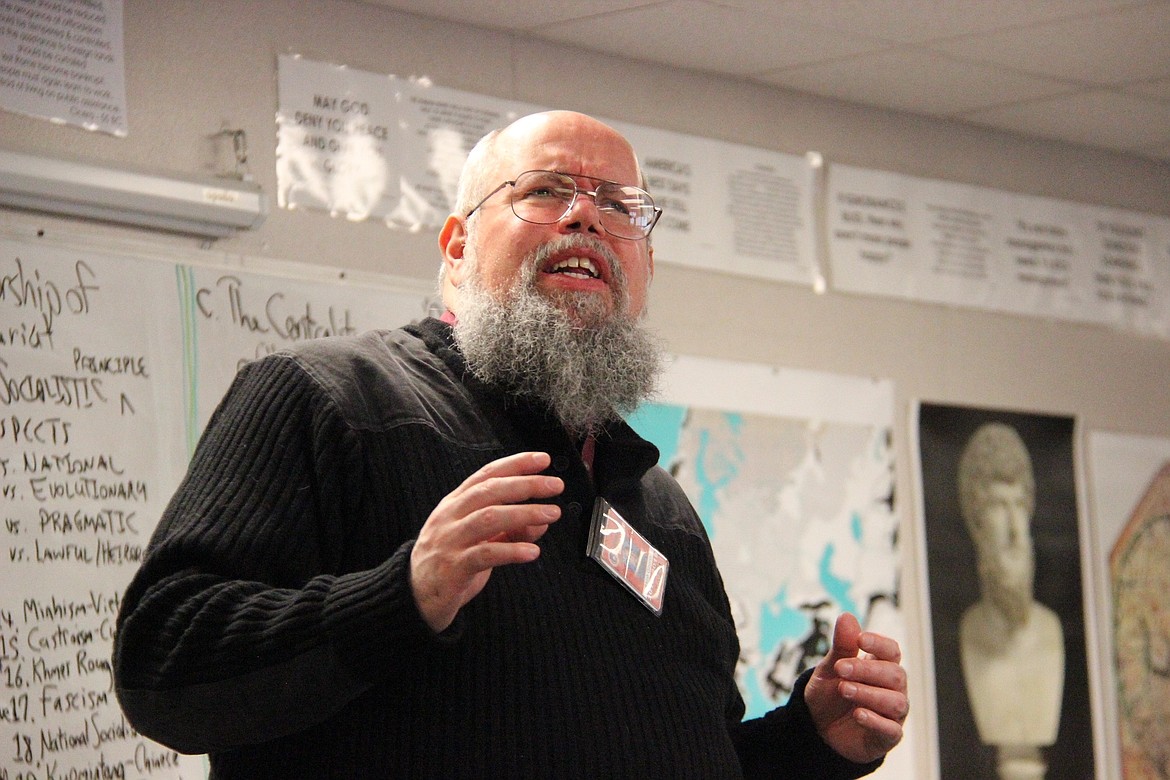OPINION: But the levy was dry
Coeur d’Alene School District 271 has announced that, as part of a shuffle in senior administration, the former director of assessment will now take on a new assistant superintendent post with duties to include overseeing instruction, federal funds and equity.
The district will also be asking the voters, through an Aug. 30 levy, for additional monies for ailing facilities.
There will continue to be massive expenditures on the district’s central administration.
Together, one superintendent, soon to be three assistant superintendents and eight directors coordinate policy for 19 schools of varying types. Coeur d'Alene School District 271 is, indeed, one of Idaho’s largest.
Aside from forests of paperwork, what does this centralized bureaucracy produce?
Will it bring “equity;” really the Communist term for equality of result regardless of individual effort? Will it bring more federal money, with all the strings attached that inevitably accompany financing from Washington, D.C.?!
Is this what the voters of Coeur d’Alene crave in their schools, a centralizing bureaucracy that steals initiative from classroom teachers and building administrators?
Top-down standardization is the inevitable consequence of having so many senior administrators and so much federal money pouring in.
The planners plan for everybody in such a system, and no planner works anywhere near a classroom or a student. Such a system exemplifies a hardening of the arteries in our schools.
This news accompanies a more-than statewide problem recruiting new teachers; something not seen before now. Despite decent pay, excellent benefits, extensive time off and an opportunity to do real good, the teaching profession lacks the appeal it once had. What has changed?
The scope of real authority for classroom teachers has been declining for decades, in exact proportion to the rise of central planning. Classroom teachers are increasingly seen as mere functionaries, implementing the designs of theoretical planning specialists and empowered visionary administrators.
This was not always the case. Teachers were once treated as skilled professionals who made most of the important choices in their classrooms. They were rightly respected as being the experts in their chosen curriculum, instructional techniques, classroom discipline and especially in their understanding of the characteristics and needs of their individual students.
Under loose administrative oversight, empowered teachers designed curricula, innovated new lessons, made a fair number of mistakes and adjusted accordingly to develop the best methods for themselves and their students.
Students once saw in their teachers many diverse examples of how free adults approached the challenges and opportunities of life. Teachers had the time and freedom to independently hone their craft while also offering wisdom and life-lessons to each interested student.
Teachers, as well as school principals, worked with troubled students whom they came to personally know and understand. Discipline was used to teach that destructive choices consistently led to fair punishment. Students saw that everyone concerned cared enough to get involved and help them to earn success. All of this was understood as being art and not science. Acculturating young people to become healthy, productive and independent citizens was more about common sense, character and trust than it was about any pedagogical theory or methodology.
Such schools required minimal supervision, limited paperwork and no top-down ideological vision. The structure of school organizations allowed for each person to learn how to make their optimal contribution.
Today, a cult of the central planner has taken hold. Theoretical specialists purport to have answers to all of the problems of the human condition. They tout the inherent superiority of their data-driven decision-making, common assessments, pre-packaged curricula and social-and-emotional manipulations.
Instead of all-too-fallible teachers, idiosyncratic principals, traditional academic standards and predictable discipline, these planners offer an ideologically-correct set of master plans. They insist that human error can be purged from education by replacing the chaos of free choice with the harmony of their control.
Does this sound at all familiar: A theory about the perfectibility of both human nature and society through the centralized regulation of choice? Our district’s leaders are good and able people, but they have completely lost sight of their own un-reflected-upon institutional biases. The system has devoured them.
There is no real reason why Coeur d'Alene School District 271 could not work toward decentralizing their organizational structure. Nothing prevents the district from committing to transfer control of our schools from central planners back to principals, teachers, parents and citizens. Nothing forces us to accept one more grant or one more dime of federal money at the expense of local control. Nothing structural stands in the way of working to eliminate the jobs of the vast majority of the district’s central planners in order to reallocate funding and most especially control back where it belongs — as close to each student as possible.
Nothing prevents any of this, except our commitment. If we awaken as an electorate, and recognize what has gone wrong with our schools and how to fix them, we can restore an education fit for flesh-and-blood human beings.
In Maine and then Idaho, Ralph K. Ginorio has taught the history of Western civilization to high school students for nearly a quarter century. He is an “out-of-the-closet” conservative educator with experience in special education, public schools and charter schools, grades 6-12. He has lived in Coeur d’Alene since 2014. Email: rginorio@cdapress.com

